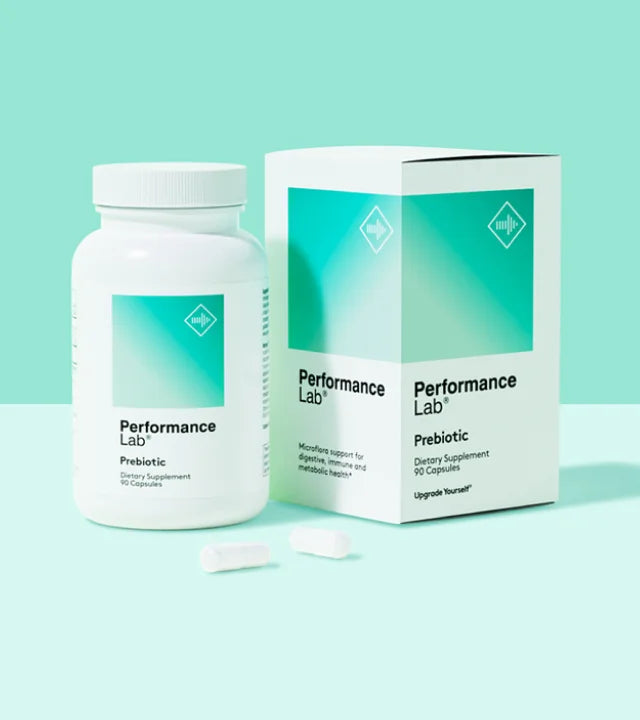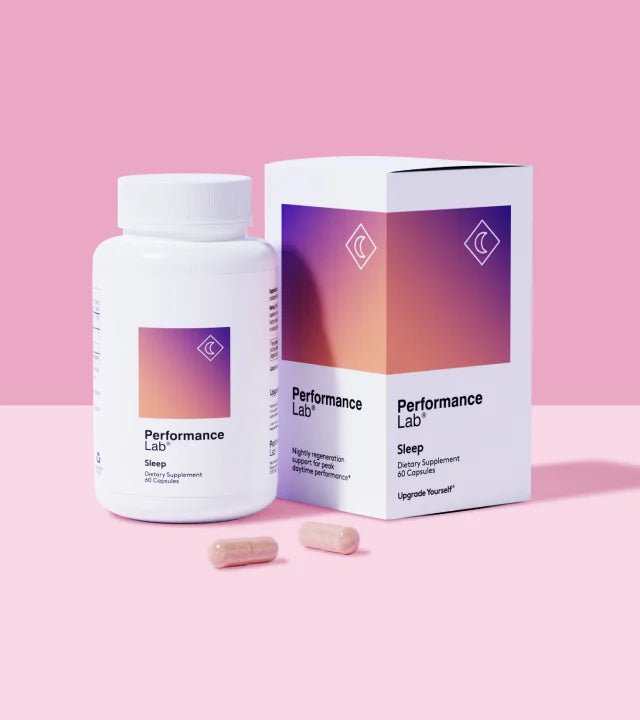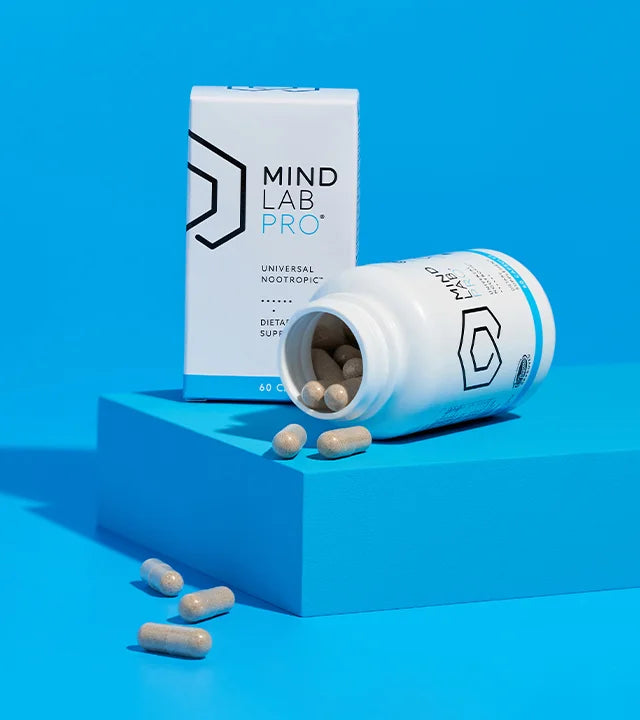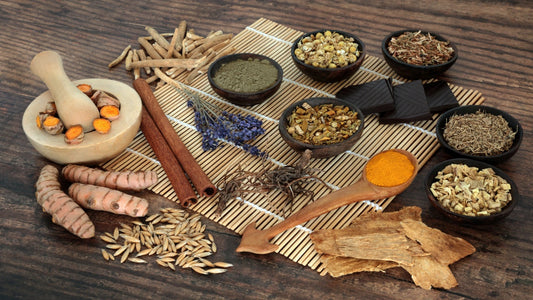Gamma-aminobutyric acid (GABA) is the brain’s primary calming neurotransmitter. It plays a key role in regulating nervous system overactivity, promoting relaxation, and supporting a bright and healthy mood. Some people seek to boost their GABA levels as a strategy for helping to manage stress, anxiety, poor sleep, and overstimulation.
By enhancing GABA activity -- through lifestyle, diet, or supplements -- it may be possible to support a calm, focused mental state, reduce symptoms of anxiety, improve sleep quality, promote emotional resilience and other benefits.
In this article, we will detail five natural ways to increase GABA naturally and unlock the full wellness potential of this calming, clarifying brain chemical. Let's get to it!
Key Takeaways
- GABA is essential for regulating the nervous system, managing stress, and promoting emotional balance.
- Low GABA levels can lead to anxiety, poor sleep, and overstimulation.
- Supporting GABA naturally can improve mental clarity, reduce stress, and enhance sleep quality.
- Foods like fermented products, whole grains, and fish can help boost GABA production and reverse GABA deficiency.
- Supplements such as L-theanine, Bacopa monnieri, and magnesium support GABA activity.
- Regular exercise, particularly aerobic activity, enhances GABA levels and reduces stress hormones.
- Meditation, yoga, and mindfulness practices can promote a calm, focused mind by increasing GABA.
- Prioritizing quality sleep helps maintain healthy GABA function and supports overall well-being.
Disclaimer
Unbalanced GABA levels may be associated with some mood disorders and mental health conditions, including major depressive disorders, anxiety disorders and alcohol withdrawal. For these reasons and more, it is important to always consult with your doctor if you suspect your GABA levels may be low. While this guide provides good tips, only a healthcare professional can design a GABA plan to best address your unique wellness needs.
Understanding GABA: A Calming Neurotransmitter

GABA (gamma-aminobutyric acid) is the brain’s most common inhibitory neurotransmitter. An inhibitory neurotransmitter is a chemical messenger that reduces the likelihood of a nerve cell firing.
GABA plays a key role in "settling down" neurons in the brain and central nervous system. This helps to balance mood, ease anxiety, and reduce the nervous system overstimulation that's related to feelings of stress or panic. GABA works to calm down over-active nerve impulses when needed, instead promoting a sense of mental calm and clarity.
People often seek to increase their GABA levels as a natural strategy for supporting emotional and psychological wellness.
When GABA levels are low, it can lead to increased stress, negatively impacting your body and overall well-being.(1) Low GABA activity has also been linked to issues like anxiety, insomnia and depression.
By boosting GABA levels, people may get some benefits for sleep quality, anxiety reduction, focus, positive mood and calm. For these reasons, GABA-boosting strategies are popular among those dealing with chronic stress, mental fatigue, mood issues and intense cognitive demands.
Let's dig into five ways to increase GABA levels naturally, along with some of the GABA benefits that are associated with healthy levels.
1. GABA Foods

The first way to increase GABA is through a well-balanced diet. Foods rich in vitamins, minerals, and amino acids can help to improve GABA production in our bodies. Eating foods like nuts, seeds, fish, and whole grains can provide the necessary nutrients to support GABA synthesis.
The first and most obvious way to increase GABA is by consuming foods rich in this neurotransmitter. Foods such as nuts, seeds, whole grains, and certain fruits and vegetables can play a crucial role in increasing GABA levels.
A short science lesson: GABA is produced by another amino acid found in the brain—glutamate. This amino acid is relatively abundant in the diet and is found in high concentrations in these foods:(2)
- Cured and preserved foods such as cheeses and meats
- Slow-cooked meat and poultry
- Bone broths
- Fish
- Eggs
- Mushrooms
- Tomatoes
- Broccoli
- Walnuts
- Soybeans
Our brain also requires other co-factors such as vitamin B6, which supports the production of GABA.(3) So there may be additional benefits to increasing your intake of B6 rich foods, such as:
- Spinach
- Broccoli
- Brussels sprouts
- Garlic
- Bananas
Additionally, GABA may also be synthesized by gut bacteria,(4) so increasing your consumption of probiotic-rich foods such as fermented foods like sauerkraut, kimchi, miso, tempeh, and kefir may help increase your GABA levels, too.
Consider adjusting your diet to include GABA-rich foods, to help naturally raise GABA levels and help you combat stress more effectively.
2. Natural Supplements

GABA is also available as an amino acid dietary supplement. A GABA supplement supplies the exact same chemical -- gamma-aminobutyric acid -- that works as a neurotransmitter in the brain. However, some research suggests these supplements' GABA does not cross the blood-brain barrier efficiently.
Nutritional supplements, including some herbal supplements and brain-boosting nootropics, can help the body produce GABA via direct and indirect pathways. Some of the top supplements for supporting GABA are:
- L-theanine, an amino acid found naturally in green tea. It has been shown to increase GABA levels and modulate GABA-A receptors, promoting a calm yet focused mental state without causing drowsiness.(5)
- Bacopa monnieri has been shown to support GABA production, which researchers suggest contributes to the herb's calming effect and may help improve rapid response decision-making.(6)
- Magnesium plays a direct role in supporting GABA function by helping GABA receptors work properly. It acts as a cofactor, enhancing the calming effects of GABA in the brain. When magnesium levels are low, GABA signaling may become less effective, which can contribute to anxiety, stress, and sleep disturbances.(7) Learn about today's best magnesium supplement
- Lemon balm, a traditional calming herb, has been shown to more directly impact GABA by inhibiting GABA transaminase, the enzyme that breaks down GABA. This action may help raise GABA levels in the brain, contributing to its well-known effects on reducing anxiety, improving mood, and promoting restful sleep.(8)
-
Vitamin B6 (pyridoxine) is another key player in GABA synthesis. It’s required for the conversion of glutamate -- an excitatory neurotransmitter -- into GABA. Without adequate B6, this conversion slows down, potentially contributing to nervous tension and mood imbalances.(9) Learn more about nootropic Vitamin B6
- Prebiotics can affect GABA levels indirectly by influencing the gut-brain axis. Prebiotics feed beneficial bacteria in the gut that help to produce neurotransmitters, including GABA.(10)
I’ve improved my gut health exponentially. Can’t recommend them enough.Josh S

For the best safety and greatest health benefits, GABA supplementation -- whether it's direct GABA supplements or indirect support -- should only be done under the supervision of your doctor.
3. Exercise

Physical activity is known to increase GABA levels in the brain.(11) By engaging in regular exercise, you'll be not only improving your overall health but also boosting your GABA levels. Regular exercise also promotes good sleep and mood balance, both of which further work to maintain good GABA levels.
Aerobic exercise is generally preferred for GABA because it:
- Reduces cortisol (a stress hormone that interferes with GABA signalling).
- Stimulates BDNF (brain-derived neurotrophic factor), which supports GABA system.
Resistance training and yoga can also help with GABA, especially for reducing stress, but aerobic exercise appears to have the best effects when it comes to increasing GABA levels naturally.
4. Meditation and Mindfulness

Activities like yoga, meditation, and deep breathing exercises can help increase GABA levels in your body, lowering stress and promoting mental health. Additionally, lower cortisol (a stress hormone that counters GABA) levels have been reported in those who regularly meditate and partake in movement practices such as yoga and tai chi.
5. Sleep

GABA helps you sleep by calming the brain and reducing overactive nerve signals, making it easier to fall asleep and stay asleep. When our GABA levels are low, we may experience difficulty falling asleep or staying asleep.(12)
When sleep is poor or inconsistent, GABA signaling can become disrupted. It's a vicious cycle. But the relationship goes both ways, too. Getting good, restorative sleep also helps your body maintain healthy GABA levels and keep GABA receptors working properly.
During deep sleep, especially in the non-REM stages, the brain goes through a process of resetting and balancing neurotransmitters, including GABA. This nightly “tune-up” helps keep the nervous system stable.
Sleep and GABA are closely related. Improving either one -- your sleep quality or your GABA support -- can help restore balance and promote better overall wellness.
An immediate change in quality and consistency of sleep. I highly recommend it.Stephanie B

Top Nootropic Stack for GABA
Mind Lab Pro®: The Ultimate Nootropic Stack for GABA, Brain Health, and Peak Cognitive Performance

MLP Ingredients: Citicoline (CDP Choline) dosage 250mg per serving, Phosphatidylserine (PS) 100mg (from sunflower lecithin), Bacopa monnieri 150mg (24% bacosides), Organic Lion's Mane Mushroom 500mg (fruit and mycelium), Maritime Pine Bark Extract 75mg (95% proanthocyanidins), N-Acetyl L-Tyrosine 175mg, L-Theanine 100mg per serving, Rhodiola rosea 50mg (3% rosavins and 1% salidrosides), NutriGenesis® Vitamin B6 (2.5 mg), Vitamin B9 (100 mcg), Vitamin B12 (7.5 mcg)
Mind Lab Pro® (MLP®) is widely regarded as the most advanced all-in-one nootropic stack, targeting both brain health and cognitive performance. Its formula is expertly designed to nourish the brain’s six key pathways, with special emphasis on promoting calm, focused mental energy.
MLP® ingredients like L-Theanine, Rhodiola rosea and vitamin B6 naturally support GABA activity.
This pro-GABA activity is one pathway by which MLP® helps to support mood, enhance emotional resilience, and promote relaxation. At the same time, Mind Lab Pro® optimizes memory, attention, mood, and mental clarity by fueling other neurotransmitters, boosting cerebral circulation, protecting the brain from oxidative stress and more.
Mind Lab Pro® is backed by three human research studies:
- MLP® was associated with significant improvements in information processing speed versus placebo.(13)
- Was linked to enhanced performance across several different types of memory (versus placebo); greatest gains in immediate and delayed recall memory.(14)
- MLP® was reported to help the brain's different regions to work together more efficiently and cohesively.(15)
Learn more about the Mind Lab Pro® clinical research studies
Whether you're looking to stay calm under pressure, power through demanding tasks, or support long-term brain health, Mind Lab Pro® delivers clean, balanced, and comprehensive cognitive enhancement.

Summary on How to Increase GABA Levels Naturally
GABA functions as a crucial brain chemical for maintaining a calm, focused mind by regulating the nervous system and managing stress, anxiety, and sleep.
When the body's GABA levels are low, it can lead to feelings of overstimulation and emotional imbalance. GABA calming support may be restored, however, with the steps discussed in this guide.
The good news? There are several natural ways to increase GABA production and promote overall well-being. By consuming GABA-boosting foods, taking the right supplements (including those mentioned in this article), engaging in regular exercise, and practicing mindfulness techniques like yoga or meditation, you can help balance GABA activity. Additionally, prioritizing quality sleep is essential for maintaining healthy GABA levels.
These natural strategies allow you to support GABA and foster a more relaxed, resilient state of mind.
References
- Lydiard, R. B. (2003). The role of GABA in anxiety disorders. Journal of Clinical Psychiatry, 64(Suppl 3), 21–27. Link
- Briguglio M, Dell'Osso B, Panzica G, Malgaroli A, Banfi G, Zanaboni Dina C, Galentino R, Porta M. Dietary Neurotransmitters: A Narrative Review on Current Knowledge. Nutrients. 2018 May 10;10(5):591. Link
- Durrani D, Idrees R, Idrees H, Ellahi A. Vitamin B6: A new approach to lowering anxiety, and depression? Ann Med Surg (Lond). 2022 Sep 15;82:104663. Link
- Strandwitz P, Kim KH, Terekhova D, Liu JK, Sharma A, Levering J, McDonald D, Dietrich D, Ramadhar TR, Lekbua A, Mroue N, Liston C, Stewart EJ, Dubin MJ, Zengler K, Knight R, Gilbert JA, Clardy J, Lewis K. GABA-modulating bacteria of the human gut microbiota. Nat Microbiol. 2019 Mar;4(3):396-403. Link
- Nathan, P. J., Lu, K., Gray, M., & Oliver, C. (2006). The neuropharmacology of L-theanine (N-ethyl-L-glutamine): a possible neuroprotective and cognitive enhancing agent. Journal of Herbal Pharmacotherapy, 6(2), 21–30. Link
- Walker EA, Pellegrini MV. Bacopa monnieri. [Updated 2023 Mar 17]. In: StatPearls [Internet]. Treasure Island (FL): StatPearls Publishing; 2025 Jan-. Link
- Papadopol V, Nechifor M. Magnesium in neuroses and neuroticism. In: Vink R, Nechifor M, editors. Magnesium in the Central Nervous System [Internet]. Adelaide (AU): University of Adelaide Press; 2011. Link
- Mathews IM, Eastwood J, Lamport DJ, Cozannet RL, Fanca-Berthon P, Williams CM. Clinical Efficacy and Tolerability of Lemon Balm (Melissa officinalis) in Psychological Well-Being: A Review. Nutrients. 2024 Oct 18;16(20):3545. doi: 10.3390/nu16203545. Link
- Field DT, Cracknell RO, Eastwood JR, Scarfe P, Williams CM, Zheng Y, Tavassoli T. High-dose Vitamin B6 supplementation reduces anxiety and strengthens visual surround suppression. Hum Psychopharmacol. 2022 Nov;37(6):e2852. Link
- Strandwitz P, Kim KH, Terekhova D, Liu JK, Sharma A, Levering J, McDonald D, Dietrich D, Ramadhar TR, Lekbua A, Mroue N, Liston C, Stewart EJ, Dubin MJ, Zengler K, Knight R, Gilbert JA, Clardy J, Lewis K. GABA-modulating bacteria of the human gut microbiota. Nat Microbiol. 2019 Mar;4(3):396-403. Link
- Novak TS, McGregor KM, Krishnamurthy LC, Evancho A, Mammino K, Walters CE Jr, Weber A, Nocera JR. GABA, Aging and Exercise: Functional and Intervention Considerations. Neurosci Insights. 2024 Sep 26;19:26331055241285880. Link
- Xiang, T., Liao, J., Cai, Y., Lin, Y., & Li, C. (2023). Impairment of GABA inhibition in insomnia disorders: Evidence from the peripheral blood system. Frontiers in Psychiatry, 14, 1134434. Link
- Utley A, Gonzalez Y, Imboden CA. The Efficacy of A Nootropic Supplement on Information Processing in Adults: A Double Blind, Placebo Controlled Study. Biomed J Sci & Tech Res 49(1)-2023. Link
- Abbott-Imboden C., Gonzalez Y., Utley A. (2023). Efficacy of the nootropic supplement Mind Lab Pro on memory in adults: Double blind, placebo-controlled study. Human Psychopharmacology: Clinical and Experimental, e2872. Link
- O’Reilly, D., Bolam, J., Delis, I., & Utley, A. (2025). Effect of a Plant-Based Nootropic Supplement on Perceptual Decision-Making and Brain Network Interdependencies: A Randomised, Double-Blinded, and Placebo-Controlled Study. Brain Sciences, 15(3), 226. Link



